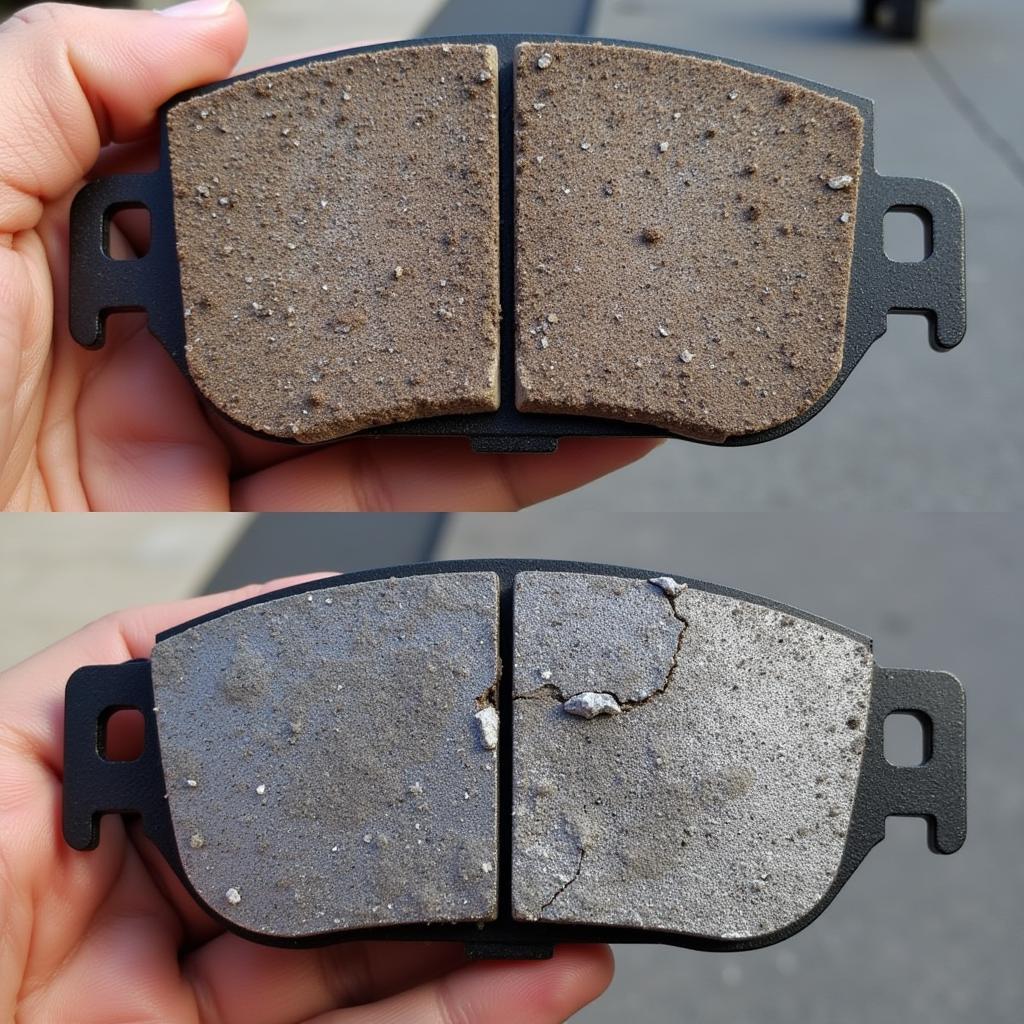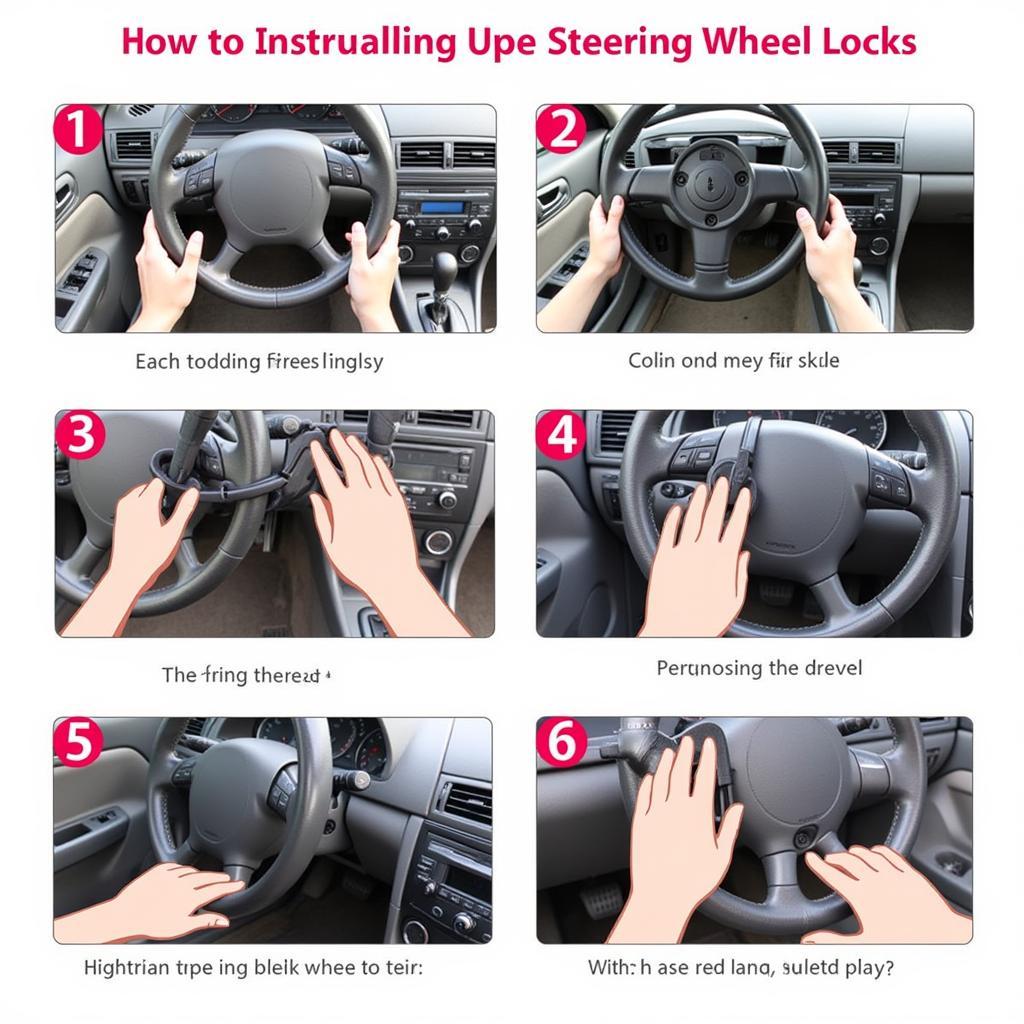The “2004 Toyota Prius brake warning light” can be a nerve-wracking sight for any driver. This light typically indicates an issue with your Prius’s braking system, which should never be ignored. In this comprehensive guide, we’ll delve into the common causes behind this warning light in a 2004 Toyota Prius and provide practical solutions to get you back on the road safely.
Understanding Your Prius’s Braking System
Before we dive into the specifics, it’s essential to grasp the basics of your 2004 Toyota Prius’s unique braking system. Unlike conventional gasoline vehicles, the Prius utilizes a regenerative braking system alongside traditional hydraulic brakes.
-
Regenerative Braking: When you release the accelerator or apply the brakes gently, the electric motor acts as a generator, converting kinetic energy back into electricity to recharge the hybrid battery. This process also provides some braking force.
-
Hydraulic Braking System: For more substantial stopping power or emergency braking, the traditional hydraulic system kicks in, using brake fluid to engage calipers that clamp down on the rotors, slowing the vehicle.
The interaction between these two systems is electronically controlled, and any fault in either component can trigger the brake warning light.
Common Causes of the Brake Warning Light
Several factors can cause the brake warning light to illuminate in a 2004 Toyota Prius. Here are some of the most common culprits:
1. Low Brake Fluid Level
One of the most straightforward reasons for the warning light is low brake fluid. This fluid is the lifeblood of your hydraulic braking system, and a leak or depletion can significantly impact braking performance.
Solution: Check the brake fluid reservoir under the hood. If the level is low, carefully add the recommended DOT 3 brake fluid. However, simply topping off the fluid won’t address a leak. If you suspect a leak, it’s crucial to have your Prius inspected by a qualified mechanic immediately.
2. Worn Brake Pads
Brake pads are designed to wear down over time. As they thin, your braking distance increases, and eventually, the brake pad wear sensor will make contact, triggering the warning light.
Solution: If you hear a squealing or grinding sound when braking, it’s likely time to replace your brake pads. While this can be a DIY job for experienced individuals, it’s generally recommended to have a professional inspect and replace the pads to ensure proper installation and function.
 Worn Brake Pads on a 2004 Prius
Worn Brake Pads on a 2004 Prius
3. Faulty Brake Light Switch
The brake light switch is a small but vital component that activates your brake lights when you press the brake pedal. A malfunctioning switch can not only prevent your brake lights from working correctly but also trigger the brake warning light.
Solution: Testing the brake light switch typically involves checking for continuity with a multimeter. Given the safety implications, it’s advisable to have a qualified mechanic diagnose and replace a faulty brake light switch.
4. Issues with the ABS System
The Anti-lock Braking System (ABS) is a critical safety feature that prevents wheel lockup during hard braking. If the ABS system encounters a problem, such as a faulty sensor or a malfunctioning control module, the brake warning light might illuminate alongside the ABS warning light.
Solution: Diagnosing ABS issues requires specialized equipment. If you suspect a problem with your ABS system, it’s essential to have your Prius diagnosed and repaired by a qualified technician with experience in hybrid vehicle systems.
5. Problems with the Regenerative Braking System
While less common, issues with the regenerative braking system can also trigger the warning light. This could be due to a problem with the hybrid battery, the electric motor, or related electronics.
Solution: Due to the complexity of the regenerative braking system, it’s strongly recommended to have any issues diagnosed and addressed by a certified Toyota technician or a qualified hybrid vehicle specialist.
What to Do When the Brake Warning Light Comes On
1. Stay Calm and Assess the Situation: If the warning light illuminates while driving, don’t panic. Safely pull over to the side of the road when it’s safe to do so.
2. Check for Obvious Signs: Inspect your brake fluid level. If it’s dangerously low, do not attempt to drive further. Call for roadside assistance.
3. Proceed with Caution: If the brake fluid level is normal and you don’t notice any immediate braking issues, proceed cautiously to a safe location.
4. Seek Professional Diagnosis: Schedule an appointment with a trusted mechanic specializing in Toyota Prius models or a certified Toyota dealership to diagnose and repair the underlying issue.
Preventing Future Brake Problems
- Regular Maintenance: Adhering to your Prius’s recommended maintenance schedule, including regular brake inspections and fluid flushes, is crucial for preventing brake problems.
- Mindful Driving Habits: Avoid aggressive braking whenever possible. This puts less strain on your brakes and can extend their lifespan.
- Address Warning Lights Promptly: Never ignore any warning lights on your dashboard, especially those related to your brakes.
Conclusion
The brake warning light in your 2004 Toyota Prius should never be taken lightly. While a simple issue like low brake fluid might be an easy fix, other problems require professional attention. By understanding the common causes, you can take appropriate action to ensure your safety and keep your Prius running smoothly. Remember, a well-maintained braking system is paramount for your safety and the safety of others on the road.
2004 prius brake problem no warning lights
FAQs
1. Can I still drive my Prius with the brake warning light on?
It’s not advisable. While you might still have some braking ability, it’s crucial to stop driving and seek professional diagnosis as soon as possible to avoid potential hazards.
2. How much does it cost to fix a brake warning light on a 2004 Prius?
The cost varies widely depending on the underlying issue. A simple brake fluid top-up might cost a few dollars, while a complete brake system repair could cost several hundred dollars.
3. How often should I get my Prius’s brakes inspected?
It’s generally recommended to have your brakes inspected at least once a year or every 12,000 miles, whichever comes first.
4. Why is my brake warning light flashing?
A flashing brake warning light usually indicates a more serious problem with the braking system, often related to the ABS system. Seek immediate professional attention.
5. Can I check the brake fluid level myself?
Yes, you can find the brake fluid reservoir under the hood. Consult your owner’s manual for its exact location and instructions on checking the fluid level.

